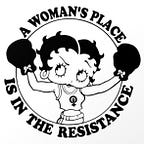Aftersun (2022), by Charlotte Wells
I don’t have memories of my father. He has been absent since I was five. Sure, we talked weekly on the phone until I graduated high school, when he vanished for good. That being said, films about fathers touch me differently. This happened recently when I watched the Brazilian film “Sol”, in which a man, who has been an absent father himself, is forced to meet his estranged father when the man tries to commit suicide. I didn’t find in “Sol” the answer for the question “should absent fathers be pardoned?” I didn’t expect to find this answer in “Aftersun” either, and what I found instead in Charlotte Wells’ movie was a deep commentary about belonging.
Calum (Paul Mescal) sees his daughter Sophie (Frankie Corio) once in a while. In one of these occasions they travel together on vacation to celebrate both of their birthdays. Dad uses his time to do several activities: take care of his daughter, guaranteeing she has sunscreen all over her body, teach her self-defense techniques and occasionally embarrass her. Sophie films everything with her camera — and revisits the footage in the present time, as an adult (played by Celia Rowlson-Hall).
There are some sequences that show perfectly that moment of non-belonging that comes with these awkward years between 9 and 12: when you’re not yet a teenager, but not a child anymore, and definitely not an adult. These sequences are when Sophie is playing pool with some teenagers and they all, including Sophie, jump in the swimming pool. The second sequence is when she’s playing water polo, called to the game by her father, and nobody gives her the ball. Sophie only finds the feeling of belonging with a boy her age, Michael (Brooklyn Toulson). In both previous moments, it’s clear the she felt alone and not part of a group — as gregarious animals, the feeling of belonging can mean the world to us, humans.
The third and final sequence about belonging is the already famous “Under Pressure” sequence in the nightclub. When they first enter the nightclub and Calum invites Sophie to the dance floor, she says that “I never dance. Ever”. She firmly believes that dancing doesn’t belong in her life, or that she doesn’t belong on a dance floor. Yet, when she gives up and father and daughter have their moment dancing, she creates the strongest memory from that trip: Calum showing his moves under neon lights, something that lies firmly on her head so many years later. It’s a lesson on persistence and challenging our beliefs: we can learn that way that we belong to the most rewarding places and create wonderful memories.
Another conversation about belonging happens between Calum and Sophie. She asks him if he’ll ever return to Scotland, to which he replies that he won’t, because “once you leave the place you grew up in, you never feel like you belong there anymore”. Could it be that he felt he never belonged to Sophie’s life?
I braced myself watching the movie, waiting for something terrible to happen. Then it occurred to me: something terrible had already happened before the movie started. In a given point in the past, Calum stopped belonging to Sophie’s life. And this is a tragedy. And from this questions arise, such as: Is the everyday abandonment worse than once leaving your daughter alone when she asks you to sing in the karaoke with her?
Calum is not always — in fact, he’s hardly ever- seen from the front. He’s filmed from the back, both from Charlotte Wells’ camera and Sophie’s camera, an is seen in reflections as well, through mirrors and windows. He is not a human being, he’s a spectrum, a ghost, a figment of Sophie’s memory. This shows his non-belonging: to Sophie’s world, to any world.
I don’t have memories of my father, but my mother and I always go on vacation together to resorts like the one Calum and Sophie are visiting in “Aftersun”. Maybe one day, when my mother won’t be able to travel with me anymore, I’ll look at our photos and videos in these resorts and let my memories feed me with nostalgia. Maybe one day, I’ll be like Sophie, and finally “Aftersun” will hit differently than it first did.
